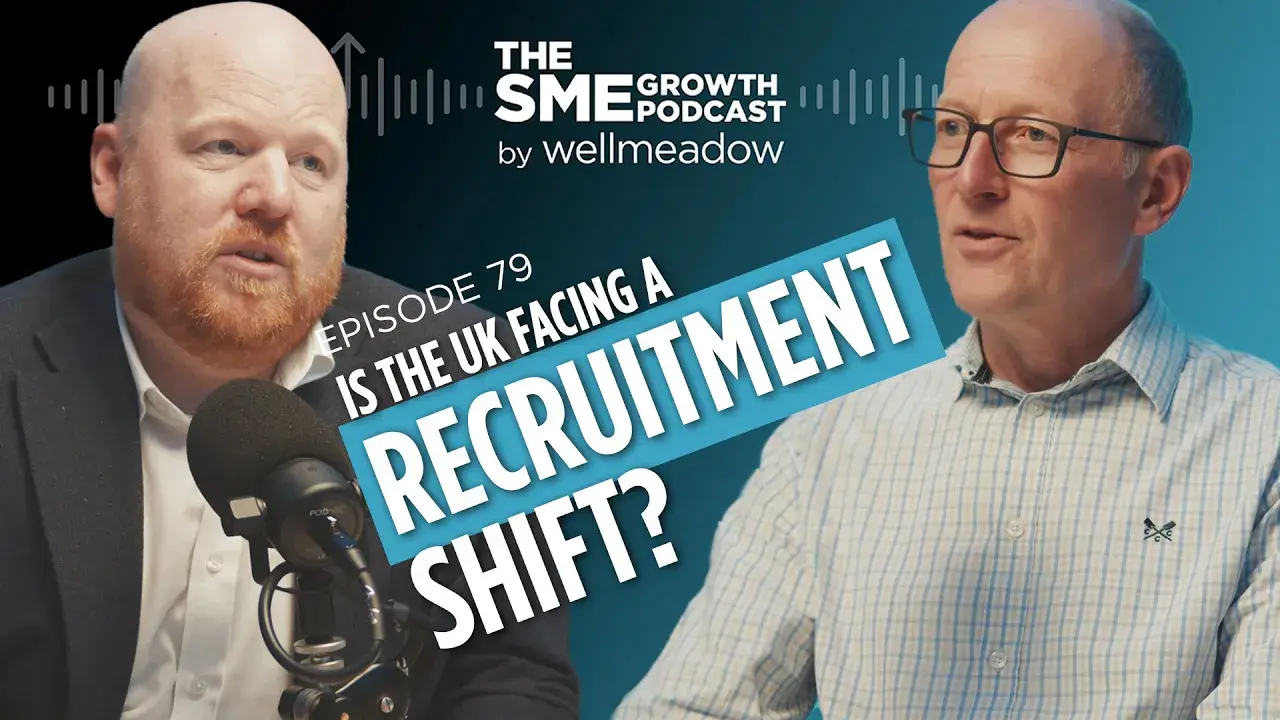Episode 109: 10 Steps in the Perfect Recruitment Process
In this thought-provoking episode, Dave Parry and Richard Buckle challenge conventional recruitment...
By: Pete Johnson on Jul 18, 2024 10:21:00 AM

In this episode of the SME Growth podcast, Rich and Dave explore the current state of recruitment in the UK, analysing recent market data and sharing insights from leading recruitment consultants. They discuss how the job market has evolved post-pandemic, changing candidate behaviours, and the growing importance of workplace culture and flexibility.
You can listen to the full episode here
"Everyone's on their own timeline. Someone might feel like when they're 20 'God, I can't work for anybody anymore' and that's fine, or it might be when you're 60 - it doesn't really matter."
"The organisations that will thrive in the future will be the ones that are able to harmonise the different needs and wants and requirements of each of those different generations."
"43% said they wouldn't accept a job that was not offering hybrid working."
This episode provides valuable insights for employers and hiring managers navigating the evolving recruitment landscape, emphasising the importance of adapting hiring strategies to meet changing candidate expectations and workplace dynamics.
In this thought-provoking episode, Dave Parry and Richard Buckle challenge conventional recruitment...
In this episode of The SME Growth Podcast, Dave Parry and Richard Buckle are joined by special...
In this episode of The SME Growth Podcast, Dave Parry and Richard Buckle discuss how businesses can...